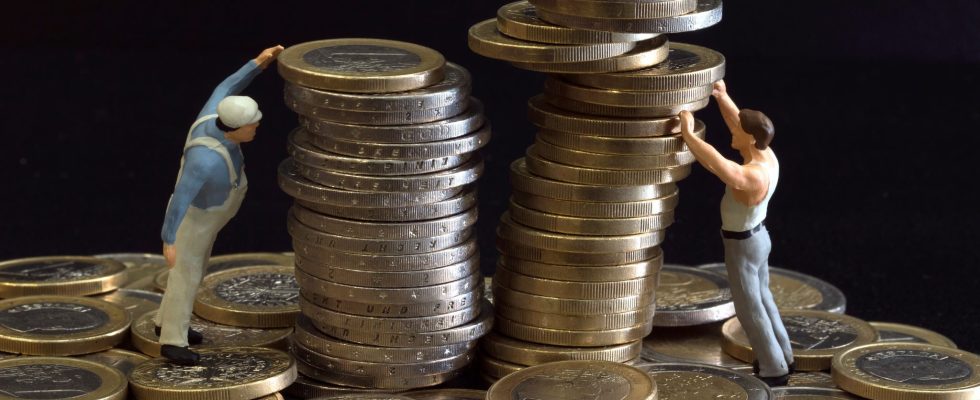The government has made it a sacred cow, harped on by its ministers in recent months. In times of inflation, there is no question of touching the tax burden which already weighs on the French. On Wednesday August 23, Elisabeth Borne recalled it again: “There is no question of increasing household taxes”. But back to school requires, and as the presentation of the 2024 finance bill gets closer, the question comes back on the table. Especially since the executive promises to contain the outbreak of public debt.
Frédéric Douet, professor of tax law at the University of Rouen-Normandie and member of the Council for compulsory levies, author of a recent column on the subject in the columns of the Figaro, recalls that the Matignon tenant only mentions households and carefully avoids talking about businesses. According to him, the whole tax system should be reviewed.
L’Express: The government is sticking to a line of not raising taxes. Will he be able to hold her?
Frederic Douet: When the State speaks of no increase, in reality it does not concern taxes which are levied for the benefit of local communities, such as property tax, which is soaring. Elisabeth Borne says she does not want to puncture households more, but what will happen to businesses? I don’t really see where to find room for manoeuvre, apart of course by cutting expenses. Income tax and social security contributions are already very heavy, as is VAT. Apart from a few small adjustments, it is not with this that we will be able to plug the holes.
What would be the consequences of an increase in corporate taxes?
Assuming that there is an increase in taxation weighing on them, they always manage to pass on more or less their costs, and in particular the tax burden, on their selling prices. There will probably not be a frontal increase in personal taxation because the government has no freedom of action and this path would be too unpopular. But in reality, because of this postponement on prices, the pressure on households will increase. Moreover, in terms of gift and inheritance tax, there are reductions and tariffs that have not been reassessed since 2012. When inflation was not very high, it was marginal. When it is at today’s level, it indirectly amounts to increasing these taxes.
Is the strategy followed by the government the right one?
Every summer, it’s the same scenario. We arrive at the time of budgetary arbitrations where each ministry tries to pull the cover to him. The question is whether this is still a profitable strategy. Don’t the French need a discourse of truth? When we talk to people, a good number of them do not understand why they pay more taxes, while public services are working less and less well, especially in the sovereign domain: justice, security, the education or health. The typical example is that of the public hospital: some say that the administrative staff is more important than the nursing staff. We often have the impression of living in the Republic of technocrats and the CERFA form. No one would dispute the need to pay more taxes if the efficiency of public spending were at the rendezvous.
So the executive would benefit from being more transparent?
It’s mostly communication and short-termism. It would be necessary to reconnect with major, much more ambitious projects, to try to give a virtuous impetus to the system and tackle the real problems. But that requires having a long-term vision. When we see the procrastination around nuclear power plants, suddenly we close, the next day we no longer close… As recently as Thursday, the Ministry for Ecological Transition announced the extension of our two coal-fired power plants to compensate for the shutdown of Fessenheim.
Some avenues are being considered, such as new taxes on plane tickets or on motorway concessionaires. Is it really useful?
Concretely, how much will it bring? I doubt that these measures will be able to reduce the abyss that has been created in our public finances over the past decade. I’m even sure of it. We must completely overhaul the tax system and dare to tackle the income tax base. Currently, only one out of two tax households pays it. It is a project that goes well beyond the time of a five-year term. And which would suppose, behind, a real political will.
When Emmanuel Macron introduced the flat tax, everyone fell on him believing that it was a gift to the rich. More pragmatically, we realized that this single levy had led to the distribution of more dividends, and therefore more tax revenue for the State. Less tax does not necessarily kill tax, on the contrary.
